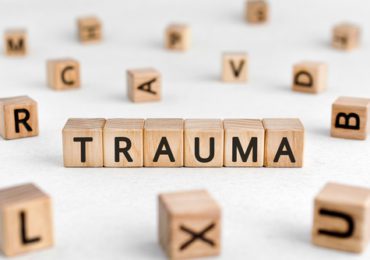By Dr. Atara Siegel, PhD.
Developing a healthy self-esteem is important to children’s mental health and well-being. However, all kids struggle with self-esteem from time to time. Kids often start to struggle with self-esteem as they hit their pre-teen and teen years. At this age, children start to become more aware of what other kids around them are doing. They realize that other kids might be faster runners, better at sports or get higher test grades than they do. Children start to compare their skills, popularity, grades, clothes and so on to their friends’, and their self-esteem can take a hit as they notice areas where they feel they don’t measure up.
Kids often start to struggle with self-esteem as they hit their pre-teen and teen years. At this age, children start to become more aware of what other kids around them are doing.
Dr. Atara Siegel, PhD
Building healthy self-esteem can be especially challenging for children with learning or developmental disabilities. Children with these disabilities are frequently put in situations where they don’t understand or complete things as quickly as their classmates. Even well-meaning parents, teachers, therapists and psychologists frequently correct them and tell them what they need to do differently. Other kids in school may bully or tease them, may not want to be their partner during group work, or not want to include them or invite them to group activities. The overarching message kids may pick up on is that they need to be “fixed” or that there is something deeply wrong with them. Children are remarkably good at picking up these societal messages.
People we have worked with in therapy have been deeply hurt that the “special-ed kids” in school have been treated differently than other students. When seeing children and young people for assessment of learning difficulties, children and young adults have told me that they believe the purpose of the assessment is to see if they are stupid, an outcast, or messages along these lines. Studies have shown that children with disabilities, such as Down Syndrome, often have internalized negative messages about their disability and are more likely to choose pictures of typically developing children as someone they would want to be friends with compared to pictures of other children with Down syndrome. All of these challenges can give a heavy hit to self esteem.
If not addressed, these self-esteem problems often persist and can lead to increased risk of mental health difficulties as children get older.
Luckily, there are several practical strategies that can help kids develop more healthy self-esteem:
- Be open about your child’s disability and learning difficulties. It may seem counterintuitive, but talking about disability matter of factly can be incredibly helpful in fighting back against shame and stigma. Many parents find it helpful to first talk to their child about the idea of difference and diversity. We are all different, and each have our own unique traits, strengths and weaknesses-that is part of what makes life interesting! This framework allows you to talk about your child’s disability as one part of what makes them unique. Using the correct name for the child’s disability (such as dyslexia, autism, ADHD and so on) can be a powerful way to let the child know that they don’t need to hide this part of themselves.
- Find opportunities for your child to thrive. Seek out activities and situations where your child can shine. Perhaps your child struggles with reading and feels frustrated throughout a lot of the school day, but they are able to shine in an extracurricular art class, juggling club, or sports team. You can also build in opportunities for your child to take responsibility and leadership at home. Maybe they can take the lead in baking dessert family occasions or take responsibility for walking their dog or cleaning the fish tank. Provide a lot of specific praise for things your child does well-ideally finding about 5 things to praise your child for every 1 correction or reprimand you need to give them.
- Model healthy ways to handle frustrations and failure. We all struggle with things we find hard! Turn these “failures” into teaching opportunities where you can model healthy ways to deal with things that are hard. Perhaps you are struggling to fix something around the house and feel like you are not very handy. You can talk that out with your child and share the steps that you do to handle it-maybe you keep trying even if it doesn’t work the first time, watch a video on YouTube to learn more or reach out for help. You are giving your kids great techniques for what to do when something is challenging.
- Have open communication with your child about hard things: When your child expresses harsh thoughts about themselves or is going through a challenging time at school or with friends, see if you can deepen your communication with them. For example, if your child says “I’m so stupid!”, see if you can validate their feelings. For example you might say “Wow. You are feeling really stupid right now. Ouch. That sounds like it really hurts.” This can help your child feel understood and feel like they can come to you with their problems. It also gives your child a chance to continue the conversation and tell you more about what is going on. You might not be able to “fix” every challenge that they go through, but knowing that they have you in their corner is invaluable.
- Self-compassion and reaching out for help. Parenting is hard. Parenting a child with a disability can pose additional challenges. Remember to be kind to yourself as well. If you made it all the way through this article, it is likely that you really care about helping your child learn that that they are worthy and can be kind to themselves even when they are struggling. Does the same idea apply to yourself as a parent? If you notice that your child is really struggling with self-esteem and it is not getting better despite your best efforts, it can be incredibly helpful to reach out to their school guidance counselor or to a psychologist for help.




